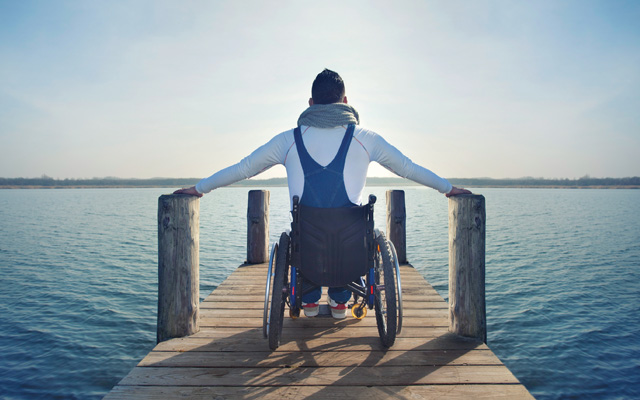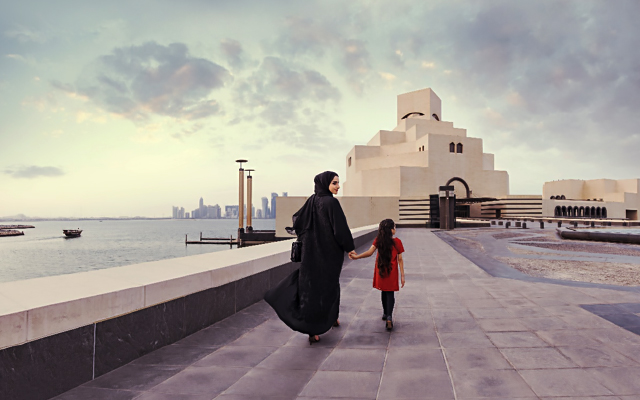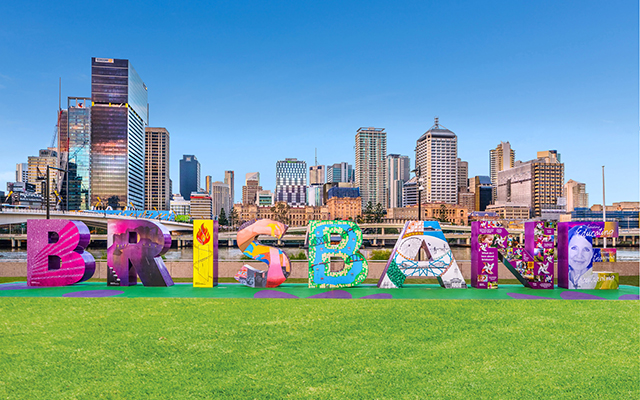Holidays and destination experiences do not always come easy for differently-abled individuals, but some tourism players are making sure that their welcome is equally warm for all guests. By Karen Yue

Travel accessibility is improving after more than two years of disruption, and people around the world have responded to easing border restrictions by getting back to travel planning.
However, for people with mobility, mental and/or sensory issues, the definition of travel accessibility takes on a much deeper meaning. While differently-abled, these consumers share the same wanderlust as everyone else and look to destinations and tourism suppliers to provide the support they need to fulfil their travel dreams.
Spain, whose tourism appeals range from big-city draws, star-studded football clubs, historical landmarks and tantalising cuisine, says all these and more welcome travellers with disabilities. Fifteen cities across the country whose historical centres and urban spaces have been declared UNESCO World Heritage Sites promise universal accessible routes.
Take Ávila for instance. The destination, renowned for its medieval city walls, is regarded as one of the leading accessible tourist destinations in Spain. The Visitor Reception Centre offers wheelchairs for loan, while travellers relying on hearing aids can communicate with a magnetic loop installed at the information desk. Typhlological scale models of five of the nine gates in the iconic city walls enable travellers with visual difficulties to learn about the monument through touch. Furthermore, audio-video guides are available in nine different languages, including international sign language and a version adapted for children.

As differently-abled travellers explore Ávila’s best sights via a specially-designed accessible route that threads through town, they will notice that commercial establishments with basic accessibility requirements are identified by the international symbol of access on their doors along with the Ávila Accessible label – the latter awarded by the Ávila Town Hall and the Municipal Board for the Disabled.
To further assist differently-abled travellers, Turespaña has created the Spain is Accessible website that allows users to search destinations by theme or disability.
Contributing to Spain’s commitment to accessible tourism is local hotel chain, Ilunion, which has 29 properties adapted for people with disabilities. Supportive facilities include individual articulated beds, telephone adapted for people with hearing and visual disabilities, inclined bathroom mirrors for people in wheelchairs, and recreational areas and parking designed for the disabled. The hotels are awarded with the universal accessibility certification (UNE 170001-2), while Ilunion itself has earned the Ethics Award from the UNWTO for its work in the field of accessible tourism. As of November 2021, two in five of the company’s 37,000-strong workforce have an impairment – demonstrating Ilunion’s determination to have diversity in both its clientele and talent teams.
Here in Asia-Pacific, Tropical North Queensland in Australia is the latest to take firm steps towards accessible tourism. In September, it announced the addition of Accessibility Hub to its destination website, listing experiences and accommodation that are accessible to all travellers.
Tourism Tropical North Queensland worked closely with Spinal Life Australia and Out There Travel Care to put together content showcasing accessible products, such as wheelchair-friendly beaches and rainforest boardwalks that are wheelchair-friendly.
“People needing to consider accessibility can now easily find accommodation options from specialised providers like Spinal Life’s Healthy Living Centre which has personal support workers, to traditional hotels with accessible rooms such as the Cairns Novotel Oasis Resort,” said Mark Olsen, CEO of Tourism Tropical North Queensland.

Disabled Mission Beach journalist Imogen Kars has trialled a selection of accessible accommodation and tours, and has produced a series of blogs on travel options in Cairns, Palm Cove, the Cassowary Coast, Port Douglas and the Atherton Tablelands.
To align tourism operators with its accessible tourism goal, the NTO led a Making Tourism More Accessible Workshop at the Spinal Life Healthy Living Centre. Trade participants got to learn about opportunities in the accessible tourism market, access business case studies, and hear from people with physical disabilities about what they are looking for in a destination.
Senior advisor access and advocacy for Spinal Life Australia, Dane Cross, said the accessible tourism market represented a largely untapped opportunity for tourism operators.
“Often, tourism operators don’t know where to begin on their journey towards better accessibility – this workshop enables people to ask simple questions and find out more about where to begin. We’d love to help tourism operators understand how to be more accessible and to secure a larger part of this market,” said Cross.
Accessible sandy paradise
Recognising that the Maldives is usually physically out of bounds for differently-abled travellers, no thanks to its sandy island paths, water jetties and layout of villas and restaurants, one private island resort has made it its mission to make its space welcoming for everyone, including those with additional mobility, sensory and cognitive requirements.
Taking guidance from Inclucare, a UK-based organisation that works to remove barriers to travel for disabled people across the globe, Amilla Maldives Resort has ordered staff training on inclusion excellence and has had its facilities audited by Inclucare officials.
The property is now waiting for the certification process to be completed.
General manager Jason Kruse told TTG Asia that Amilla Maldives Resort is equipped to meet inclusive travel needs. It already boasts many universally accessible villas on the ground level, all designed with wide doorways and accessible showers. These units also come with beach wheelchair, floating wheelchair for swimming, and in-villa phones that light up when they ring, for the benefit of hearing-impaired guests.
Soon to come are deaf-alert systems, induction hearing loops, magnifying glasses, adaptive yoga, aroma and sound experiences through the jungle for vision-impaired holidaymakers, and facilities that regulate sensory input for guests on the autism spectrum.

Taking ground control
Thailand-based travel operator and distributor Tripseed has recently made the country even more welcoming through a range of accessible travel programmes and experiences.
These inclusive tours for elderly and disabled travellers promise more than just wheelchair-accessible facilities. Extensive audits have been conducted across properties, tour locations and transportation – all to evaluate ramp inclinations, availability of grab bars, manoeuvrability clearance and other important aspects, and to advise agents and partners on the most suitable travel options based on the level of assistance required.
Looking to support travellers with invisible disabilities, Tripseed is standing by specialised guides who are trained in American sign language, British sign language and Thai sign language, as well as those trained to assist guests with other audio-visual impairments.
With this universal accessibility arrangement, Tripseed’s differently-abled guests can enjoy top-selling tours, such as an evening street food experience in an electric tuk-tuk, specially outfitted with a built-in wheelchair ramp and unique wheelchair restraint system – a first in the industry.
Tripseed also scrutinises tour routes to ensure that travellers are not met with navigation difficulties.
Founder Ewan Cluckie told TTG Asia that his company has delivered two accessible trips for the Thai market at press time in September, and has a few international bookings lined up for the upcoming Christmas period and through to mid-2023.
It is also working with Wheel the World to reach out to differently-abled travellers.
















